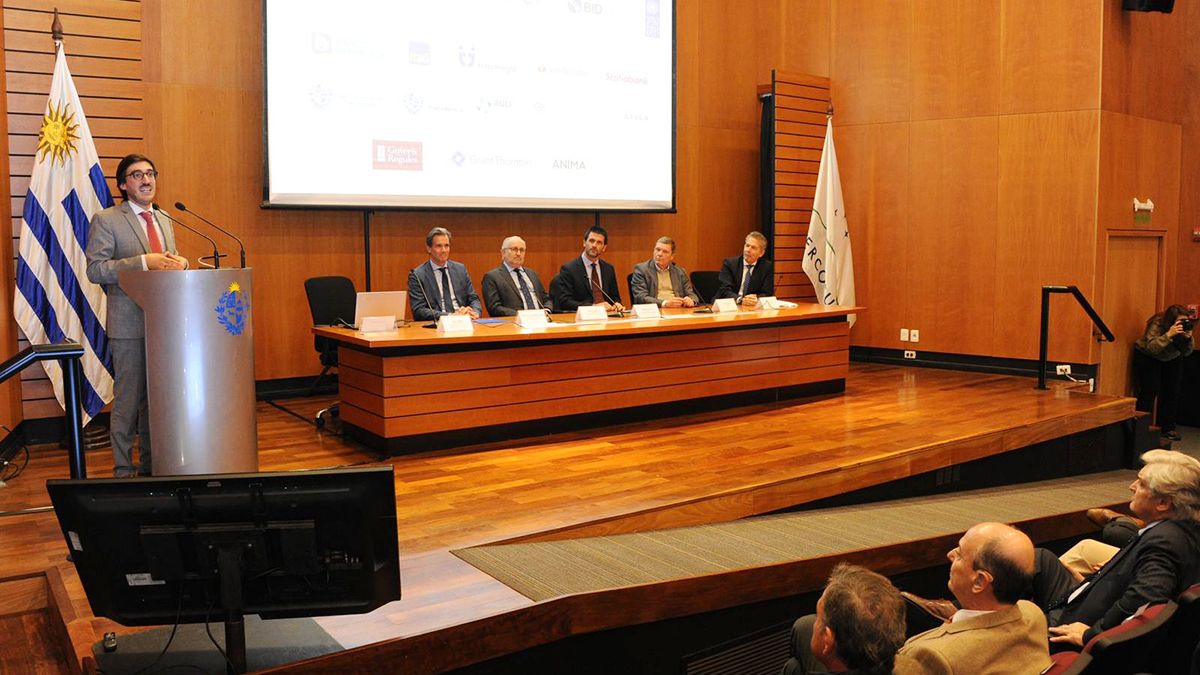The government, together with international and civil society organizations, presented the first Social Impact Bond (BIS)a mechanism that will allow private funds to be obtained for the execution of social services, and that will be implemented in the area of education through the educational center Anima.
The BIS is a financing tool based on payment by results, which will be implemented on a pilot basis with the objective of increasing completion rates of upper secondary education, employment and educational continuity, through dual education. The instrument involves investors, service providers, and the entities that participate in the payments, which pay the premium to those who invest if the set goals are achieved.
The task will be carried out by the Ánima educational center, a non-profit organization, through it, some 50 young people in situations of socioeconomic vulnerability They will take the technological baccalaureate.
He Minister of Education and Culture (MEC), Pablo da Silveira highlighted the innovative features of the BIS and highlighted the government’s ability to present new initiatives, such as the public debt bond tied to environmental performance. Thus, “new ways are being sought to reach a fairer and more efficient society in the management of public funds,” said the leader.
For his part, the Minister of Social Development (Mides), Alejandro Sciarra, explained that his portfolio seeks to achieve policies that generate trust in citizens, who finance it with their taxes, and considered that the presentation of the bond implies that this trust exists. The head of Mides also stated that the programs for early childhood, youth and job placement, among others, created the right environment to implement this new tool.
The national director of Data Transfers and Analysis of Mides, Antonio Manziexplained that “the State enters when the previously agreed, measurable and verified results are met,” adding that this “is a new type of contract that is based on achieving the results to disburse that resource,” and that “if the results are not are achieved, the State does not pay”, valuing this as “the innovation of this instrument”.
The indicators that must be met to release payments to investors are: approval of the educational cycle, graduation, obtaining a job one year after graduating and maintaining it for four months or moving on to tertiary education.
Finally, the director of the National Vocational Training Institute (Inefop), Pablo Darscht, indicated that the organization will participate in the financing of the last of the four payments planned for investors, which is related to employability. “The bond opens future perspectives for greater efficiency in the implementation of public policies focused on social issues,” he stated.
The contribution of the private sector in the educational process
Ximena Sommerexecutive director of Ánima, explained that this organization promotes and implements dual training in Uruguay, with the idea of ”generating the best conditions so that young people from the most disadvantaged contexts can develop personally and professionally.” “In Ánima they complete high school with greater opportunities for job placement and educational continuity, which is part of the impact objectives of the bonus,” she stated.
The initiative is the product of an agreement between the Uruguayan Agency for International Cooperation (AUCI) and the United Nations Development Program (UNDP), and involves the creation of a trust of $600,000 that is formed from the participation of the Office of Planning and Budget (OPP), the Mides, the MEC, Inefop and himself IDB Labas well as co-payers: Banco República (BROU), Itaú, Santander, ScotiaBankand the ReachingU Foundation.
Also participating in the launch were Pro-Secretary of the Presidency, Mariana Cabrera; he director of the AUCI, Mariano Berro; he representative of the Inter-American Development Bank (IDB) in Uruguay, Luiz Ros; and that of UNDP in Uruguay, Alfonso Fernández de Castro.
IDB Government.jpg
Source: Ambito




